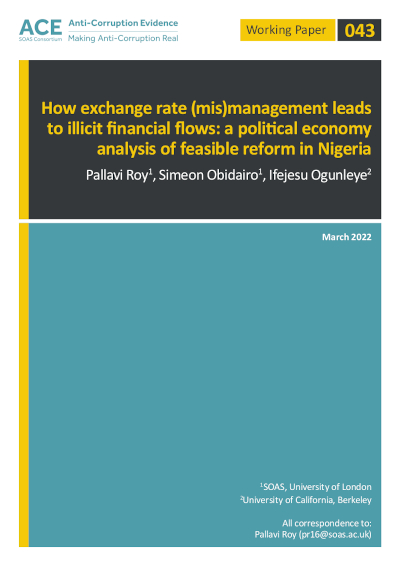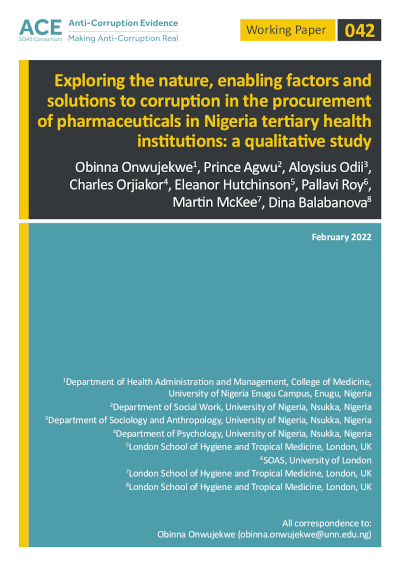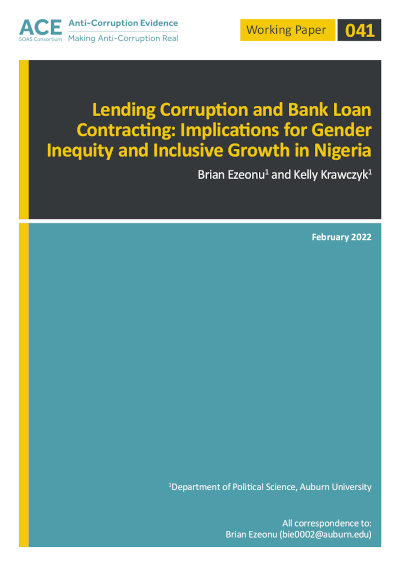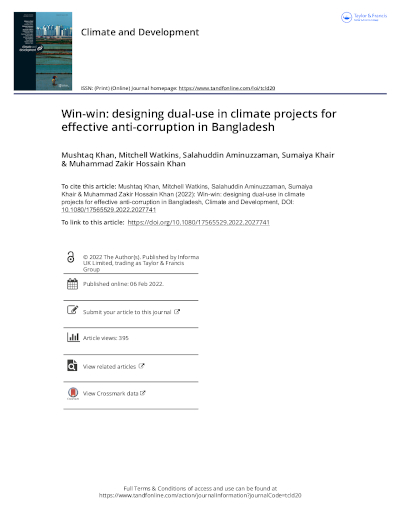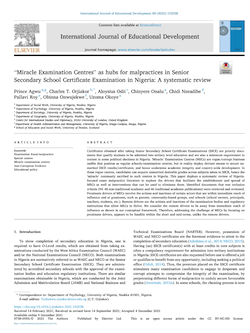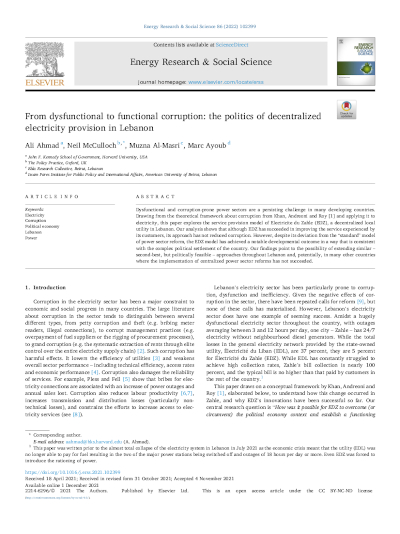Total publications found: 103
How exchange rate (mis)management leads to illicit financial flows: a political economy analysis of feasible reform in Nigeria
Illicit financial flows (IFFs) remain a major issue in extractive economies such as Nigeria. Furthermore, strict capital controls and fixed exchange rates can often provide incentives ...
Exploring the nature, enabling factors and solutions to corruption in the procurement of pharmaceuticals in Nigeria tertiary health institutions: a qualitative study
Pharmaceuticals account for a large share of health budgets, second only to salaries of the workforce in most countries. Coupled with the complexity of managing multiple ...
Lending corruption and bank loan contracting: implications for gender inequity and inclusive growth in Nigeria
Lending corruption, which is the focus of this research, captures both paying bribes and using familiarity rather than merit as the metric to access credit.
Win-win: designing dual-use in climate projects for effective anti-corruption in Bangladesh
Climate adaptation projects in Bangladesh have been widely affected by high levels of corruption and resource leakage.
Corruption during final external examinations in private secondary schools in Nigeria: qualitative insights into operations and solutions to ‘Miracle Examination Centres’
The quality of the secondary education system in Nigeria is ranked below average by both local and international bodies. Corruption is a major reason for ...
“Miracle Examination Centres” as hubs for malpractices in Senior Secondary School Certificate Examination in Nigeria: A systematic review
Highlights Certificates obtained from writing Senior Secondary Certificate Examinations (SSCEs) are priority documents in Nigeria. The pressure to obtain these certificates have given rise to ...
The curse of good intentions: why anticorruption messaging can encourage bribery
Awareness-raising messages feature prominently in most anticorruption strategies. Yet, there has been limited systematic research into their efficacy. There is growing concern that anticorruption awareness-raising ...
The EFCC and ICPC in Nigeria: overlapping mandates and duplication of effort in the fight against corruption
Corruption remains a major hindrance to Nigeria’s development, despite efforts made by successive regimes to combat it. In the absence of institutionalised anti-corruption agencies (ACAs) during military ...
From dysfunctional to functional corruption: the politics of reform in Lebanon’s electricity sector
Dysfunctional and corruption-prone power sectors are a persisting challenge in many developing countries. Drawing from the theoretical framework about corruption from Khan, Andreoni and Roy ...
Charting the way forward for Nigeria’s Economic and Financial Crimes Commission: a path towards institutional efficiency and independence
Nigeria’s Economic and Financial Crimes Commission (EFCC) was created in 2002 to complement the Independent Corrupt Practice and Other Related Offences Commission (ICPC). This was ...


